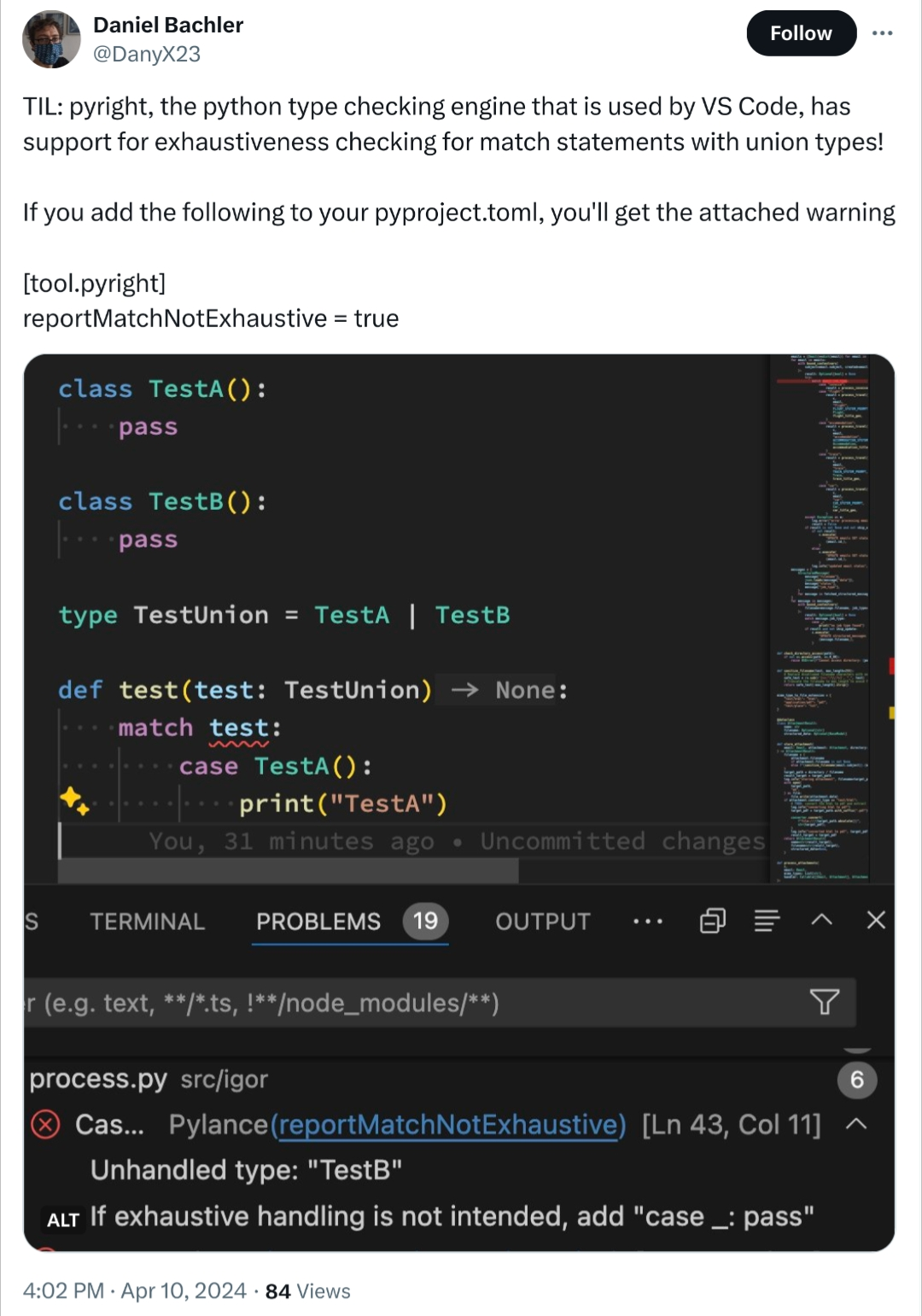this post was submitted on 23 Apr 2024
82 points (100.0% liked)
Python
6378 readers
109 users here now
Welcome to the Python community on the programming.dev Lemmy instance!
📅 Events
Past
November 2023
- PyCon Ireland 2023, 11-12th
- PyData Tel Aviv 2023 14th
October 2023
- PyConES Canarias 2023, 6-8th
- DjangoCon US 2023, 16-20th (!django 💬)
July 2023
- PyDelhi Meetup, 2nd
- PyCon Israel, 4-5th
- DFW Pythoneers, 6th
- Django Girls Abraka, 6-7th
- SciPy 2023 10-16th, Austin
- IndyPy, 11th
- Leipzig Python User Group, 11th
- Austin Python, 12th
- EuroPython 2023, 17-23rd
- Austin Python: Evening of Coding, 18th
- PyHEP.dev 2023 - "Python in HEP" Developer's Workshop, 25th
August 2023
- PyLadies Dublin, 15th
- EuroSciPy 2023, 14-18th
September 2023
- PyData Amsterdam, 14-16th
- PyCon UK, 22nd - 25th
🐍 Python project:
- Python
- Documentation
- News & Blog
- Python Planet blog aggregator
💓 Python Community:
- #python IRC for general questions
- #python-dev IRC for CPython developers
- PySlackers Slack channel
- Python Discord server
- Python Weekly newsletters
- Mailing lists
- Forum
✨ Python Ecosystem:
🌌 Fediverse
Communities
- #python on Mastodon
- c/django on programming.dev
- c/pythorhead on lemmy.dbzer0.com
Projects
- Pythörhead: a Python library for interacting with Lemmy
- Plemmy: a Python package for accessing the Lemmy API
- pylemmy pylemmy enables simple access to Lemmy's API with Python
- mastodon.py, a Python wrapper for the Mastodon API
Feeds
founded 1 year ago
MODERATORS
you are viewing a single comment's thread
view the rest of the comments
view the rest of the comments

I mean thats one of the big points of python and why you wanna use it in the first place.
I personally don't main python but to me this all seems like a effort to retrofit the language for use in large enterprise and web applications, something for which it honestly never should have been used this heavily in the first place. I guess the state of the world 10 years ago let to it, with .NET not officially being multiplat, Java being Java and Rust, Kotlin and Go being in their infancy.
To me Python always was a cool language to write small scripts to automate certain things. Something a single developer writes with < 10K LoC. Where than you can achieve the same thing with way less code and less hastle like setting up a seperate build tool
If your gonna go heavy on typing and error handling but don't want the complexity of a compiled language just use a .NET or JVM lang, honestly. They are fundamentally built around strong typing and use that information for much better performance and developer experience.
Or if you just want THE most flexible typesystem where you can specify types as broad or specific as possible typescript takes the cake.
I write Python and Typescript with full typing for my day job, and it's pretty nice. Here's the general workflow:
In development I get the benefit of most of the types being specified, but I don't need to specify everything until I'm done. I much prefer Python to Typescript, but my hands are tied on the FE.
If I needed better performance though, I'd write in Rust, which is actually what I use for most of my hobby projects.